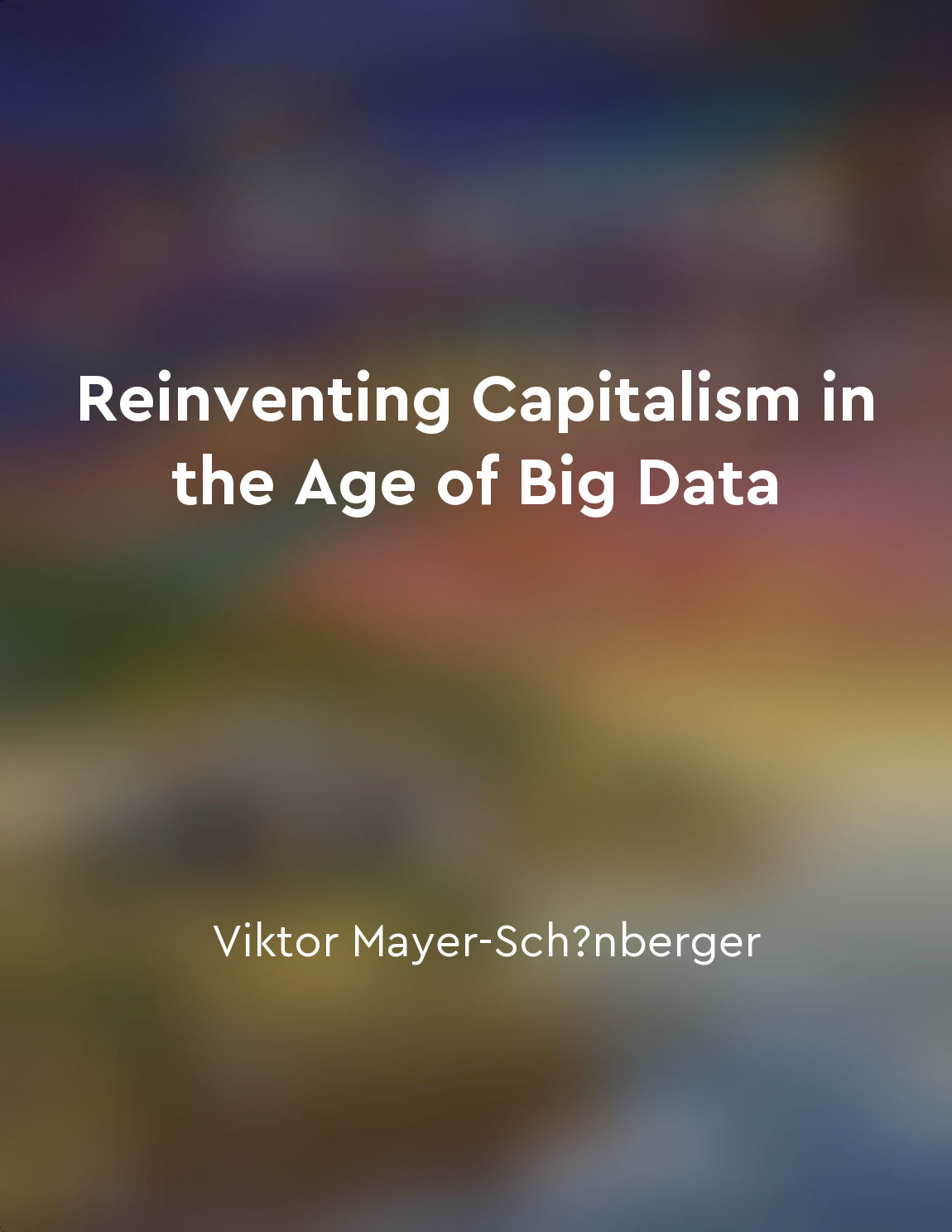The potential benefits of big data must be weighed against the risks from "summary" of Reinventing Capitalism in the Age of Big Data by Viktor Mayer-Schönberger,Thomas Ramge
The allure of big data lies in its promise to transform industries, drive innovation, and revolutionize our understanding of the world. Organizations are investing heavily in data analytics tools and technologies to harness the power of data to gain competitive advantages and unlock new opportunities. However, amidst the excitement and enthusiasm for big data, it is crucial to pause and consider the potential risks and implications associated with its use. One of the key risks of big data is the threat to individual privacy and data security. As organizations collect and analyze vast amounts of data about individuals, there is a growing concern about how this data is being used and whether it is being adequately protected from unauthorized access or misuse. The misuse of personal data can have serious consequences, ranging from identity theft and fraud to discrimination and manipulation. Another risk of big data is the potential for bias and discrimination in data analysis. As algorithms process and interpret data to make decisions, there is a risk that biases inherent in the data or the algorithm itself may lead to unfair or discriminatory outcomes. For example, biased algorithms used in hiring or lending decisions can perpetuate existing inequalities and disadvantage certain groups. Moreover, the sheer scale and complexity of big data can make it challenging to ensure data accuracy, reliability, and accountability. Errors or inaccuracies in data collection, processing, or analysis can lead to flawed insights and misguided decisions, with far-reaching consequences for individuals, organizations, and society at large. In light of these risks, it is essential for organizations to adopt a responsible and ethical approach to the use of big data. This involves implementing robust data governance frameworks, ensuring transparency and accountability in data practices, and prioritizing data privacy and security. By proactively addressing these risks and challenges, organizations can maximize the benefits of big data while minimizing its potential harms.Similar Posts
Society's dependence on algorithms increasing
The reliance on algorithms in our everyday lives has reached a point where it is difficult to imagine functioning without them....
Accountability in automation is a challenge
The challenge of accountability in automation looms large in our contemporary technological landscape. This issue is not just a...
The future is uncertain but full of possibilities
In the vast expanse of time that lies ahead, one thing is certain: uncertainty. The future is a realm of endless possibilities,...
Artificial intelligence alters human perception
Our perception of reality is heavily influenced by the information we receive from our senses. What we see, hear, touch, taste,...

Collaboration between governments and tech companies is key
The relationship between governments and tech companies is a critical area that demands careful attention. On one hand, governm...

AI development should be guided by ethical principles
AI development must be guided by ethical principles, as the decisions we make today will have far-reaching consequences for our...

